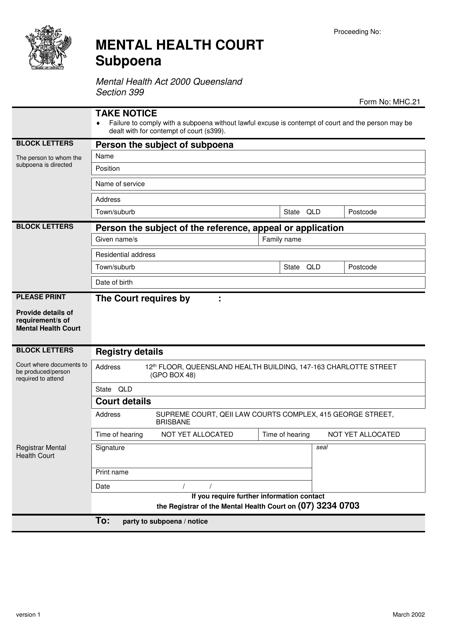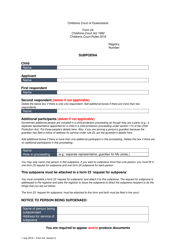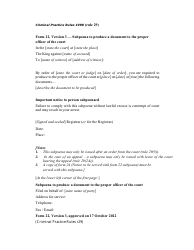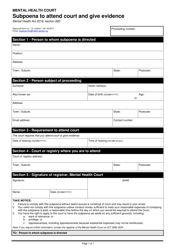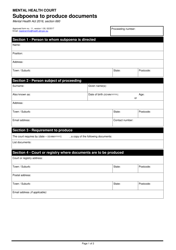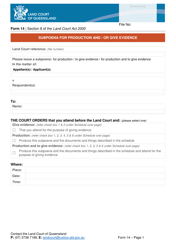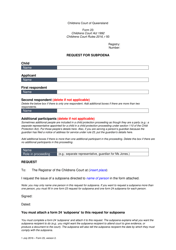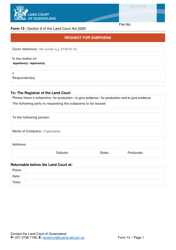Form 21 Subpoena - Queensland, Australia
Form 21 Subpoena in Queensland, Australia is used to compel a person to provide evidence or documents in a legal proceeding. It is typically issued by the court or a legal practitioner and requires the recipient to attend court or produce specific documents. The purpose of a subpoena can vary depending on the case, but it is commonly used to gather evidence, support legal claims, or assist in the administration of justice.
The Form 21 Subpoena in Queensland, Australia is typically filed by a party involved in a legal proceeding, such as a lawyer or an individual representing themselves (known as a litigant in person). The party filing the Form 21 Subpoena is responsible for ensuring that it complies with the relevant legal requirements and serves it on the person or organization named in the subpoena.
FAQ
Q: What is a Form 21 Subpoena?
A: A Form 21 Subpoena is a legal document that requires a person to produce certain documents or appear as a witness in a legal proceeding in Queensland, Australia.
Q: Who can issue a Form 21 Subpoena?
A: A Form 21 Subpoena can be issued by a party to a legal proceeding or their legal representative in Queensland, Australia.
Q: What information is required in a Form 21 Subpoena?
A: A Form 21 Subpoena typically includes details such as the names of the parties involved, the court file number, the documents or evidence being requested, and the date and time for compliance.
Q: What happens if someone receives a Form 21 Subpoena?
A: If someone receives a Form 21 Subpoena, they are legally obligated to comply with its requirements, which may involve producing documents or appearing in court as a witness.
Q: Can a Form 21 Subpoena be challenged or set aside?
A: Yes, a person who receives a Form 21 Subpoena can challenge or seek to have it set aside in certain circumstances, such as if it is overly burdensome, irrelevant, or privileged information is being requested.
Q: What are the consequences of failing to comply with a Form 21 Subpoena?
A: Failing to comply with a Form 21 Subpoena without a valid reason can result in legal consequences, including being held in contempt of court, facing fines, or other penalties.
